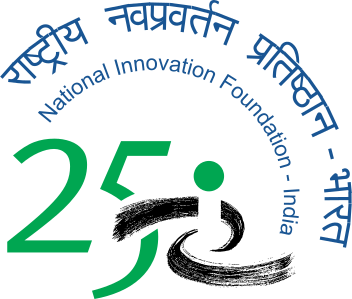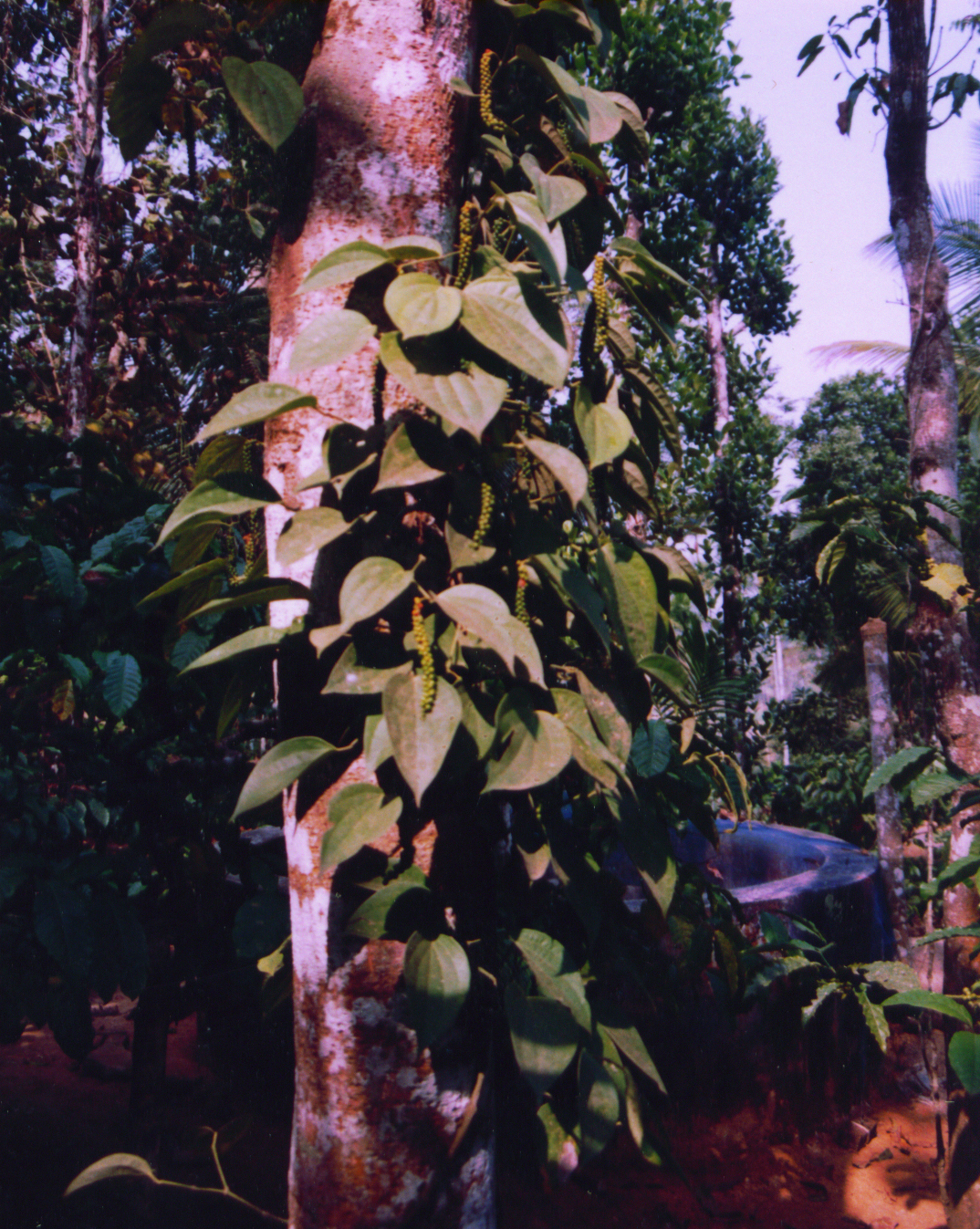Quick wilt resistant varieties of pepper
Developing the two varieties
In 1980, Balakrishnan attended four months training programme on production of hybrid pepper variety conducted by the All India Radio where he learnt the systematic method of production. Thereafter, at the first onset of monsoon, he started experimenting using Uthirankotta as the female parent and Cheruvally as the male parent, with an aim to obtain a disease resistant as well as high yielding variety. He identified flowers of healthy branches of Uthirankotta and pollinated them manually with Cheruvally pollens. He could collect around 50 berries from the crossed plant, which he re-sowed them under strict supervision. Almost after eight years he could develop a new plant variety producing high yield, with healthy spikes and vigorous growth. It was named as Aswathi after his birth star.
Later, he made another attempt by crossing two local varieties Karimunda and Cheruvally following the same procedure. Karimunda was known for its high productivity. He was successful again in developing an improved variety, which he named as Suvarna. He shared about his work with scientists at Pepper Research Station, Panniyur in 1998 and discussed his methodology.
The wilt problem
Black pepper is an important cash crop in several parts of Kerala. Quick wilt, which is a fungal disease, is one of the main reasons for inflicting heavy losses in the pepper production in these traditional pepper producing areas. The fungus attacks both the root system as well as the aerial parts of the pepper plant. The attack on the root system causes complete damage of the plant within months.
In Kerala, around 2001-02, almost entire pepper plantations were destroyed by quick wilt disease and several good farms were wiped off completely. The incident was very unfortunate and even pesticides were not effective against it. However, the varieties developed by him were not affected much. The news of resistance of his varieties against wilt slowly spread in the village. As a result of which many experts and scientists visited his field and appreciated his work. The information also got published in local newspapers. Balakrishnan also distributed some cuttings to a few interested farmers.
The quick wilt resistant varieties
Aswathi and Suvarna varieties were developed through crossing using the local varieties Uthirankotta and Karimunda as female parent respectively and ‘Cheruvally’ as the male parent for both varieties.
While Aswathi matures in 8 months Suvarna matures in 7 months. The spike length in Aswathi is 10-15 cm while in Suvarna it is 8 cm with the number of berries per spike being 180-200 and 90-100 respectively. The weight of 1000 pepper is 1.6 kg and the yield per vine pepper 5 kg for both. The dry recovery in both the cases is about 50 per cent. Both the varieties are quick wilt resistant and tolerant to drought conditions.
Many farmers, who grew these varieties, found that these two varieties gave higher dry pepper yield, are vigorous in growth and resistant to quick wilt. Balakrishnan has been getting many queries for the seeds of his varieties but is unable to fulfill the demand.
As per the report of the Indian Institute of Spice Research, Calicut, Kerala, which conducted a laboratory test inNovember 2008, the Aswathy variety was found to be resistant to Phythopthora capsici, the causal organism of quick wilt.
Felicitations
In May 2000, Balakrishnan was recognized as a progressive innovative farmer by the Regional Agricultural Research Station, Ambalavayal (Kerala Agricultural University). In August 2005 he was awarded by INFAM for the work on pepper hybridization. He also won a consolation prize for his pepper varieties in IST Farmers’ Science Congress organized by Kerala Agricultural University in February 2008. Apart from the recognitions, his work has been appreciated in a locally popular agricultural magazine Karshakasree, and other local news papers.
(Don’t bother about what others say, concentrate on your work; the quest for knowledge should not be affected by other’s comments)
Balakrishnan (59), an innovative farmer from Kerala, has developed two quick wilt resistant varieties of pepper namelyAswathi and Suvarna through crossing.
He was born in an agricultural family in Wayanad, the hilly district of Kerala where agriculture is the main source of livelihood. Paddy, plantain, coffee and pepper are the major crops in the area. The original inhabitants of the district constitute the tribals while the rest are migrants from the plains. His father also migrated here from the neighbouring district of Kozhikode. Presently, his family consists of his wife and two children.
As agriculture was not a profitable venture then, his father insisted upon him to look for some permanent job in non-farm sector. But in 1968 he decided to initiate himself into the agriculture field, just after the completion of class ten, as agriculture was his passion. Of the two acres he owned, he used one acre for paddy crop and another one for coffee and pepper plantation. After sometime he started concentrating more on pepper plantation, as the crop gave comparatively better profit than paddy.
In the 1960s, Panniyur was the popular variety of pepper of the region and was known for higher and early yield. He also started cultivating the variety of Panniyur along with the other local varieties such as Suganthakurumullaku, Karikonta, Cheruvally, Kalluvally, Uthirankotta and Balankota. Apart from working on his pepper plantation, Balakrishnan has also does budding on coffee, and grafting in flower and vegetable crops.








